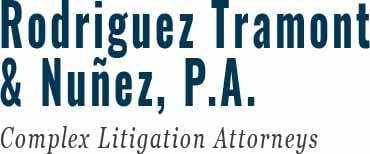Unsuitable Investment Advice
New FINRA Conduct Rules Strengthen Investor Protections
New securities conduct rules designed to protect investors and ensure fair dealing with customers were proposed by the Financial Industry Regulatory Authority (FINRA) and have been approved by the Securities Exchange Commissions (SEC) effective October 7, 2011. The “know-your-customer” FINRA Rule 2090 and “suitability” FINRA Rule 2111, conduct rules contain language similar to the rules promulgated through the NYSE and NASD prior to their consolidation with changes that strengthen the protection of investor rights.
Know Your Customer (FINRA Rule 2090)
The “know-your-customer” rule begins with the opening of the customer account and the requirement to ascertain through “reasonable due diligence” the determination of all “essential facts” concerning every customer of the brokerage firm. The essential facts are those required to:
- effectively service a customer’s account;
- act in accordance with special instructions;
- act on behalf of account holder;
- comply with industry laws, rules and regulations.
The “know-your-customer” obligation does not depend on whether a financial advisor has made a recommendation.
Suitability (FINRA Rule 2111)
The “suitability” rule requires that a financial advisor and his brokerage firm have a “reasonable basis” to believe that a recommended investment or investment strategy is suitable based on a customer’s investment profile. The rule requires “reasonable diligence” to ascertain information concerning a customer’s investment profile, including:
- age;
- other investments;
- employment status;
- tax status;
- investment objectives;
- financial situation and needs;
- investment experience;
- investment time horizon;
- liquidity needs;
- risk tolerance, and
- any other information disclosed by customer in connection
with recommendation.
The new rule relies upon a financial advisor’s investment recommendation as the triggering event for application of the rule. The rule applies a flexible approach to the “facts and circumstance” of a particular customer recommendation. A recommendation does not rely upon a transaction or the generation of compensation for its existence. A recommendation can result from financial advisor communication directed to facilitate a transaction or refrain from any transactions regarding a security or investment strategy in a customer account. The financial advisor must have a firm understanding of both the investment and the customer. Failure to understand both aspects is considered a violation of the rule.
The customer information profile includes an expanded list of types of information required for consideration when a suitability determination is made about an investment recommendation. To strengthen the rules that require the suitability analysis, financial advisors and brokerage firms are required to indicate with “specificity” the reasonable basis for why a particular customer information profile factor is not relevant, in order to be relieved of the obligation to seek the required information.
You are probably asking yourself whether you have a legitimate claim for damages. To consider whether you are the victim of unsuitable investment advice, consider the following FAQs.
Frequently Asked Questions:
Q: What Factors Determine Whether an Investment Recommendation was Made?
Q: How does my Recent Retirement Change the Suitability of Investment Advice?
Q: How do I determine whether I have a viable Securities Arbitration Claim?
Q: I held securities in my account that I purchased years ago, my broker never told me to sell and I sustained significant losses. Do I have a viable Securities Arbitration Claim?
According to securities industry rules, a financial advisor’s critical functions and tasks include; monitoring customer’s accounts and making recommendations consistent with changes in economic and financial conditions as well as the customer’s needs and objectives. Based on these considerations, a financial advisor is required to recommend to its customer which securities to acquire, liquidate, hold, or hedge. Failure to provide suitable investment advice on a timely basis may be a viable cause of action for a securities arbitration claim.
Q: What Factors Determine Whether an Investment Recommendation was Made?
The more individually tailored a communication is made to a particular customer about a specific security or investment strategy, the stronger the support for the contention that a recommendation was made to a client. A series of communications taken together can provide greater insight as to the nature of an investment recommendation, whether written or oral.
Q: How does my Recent Retirement Change the Suitability of Investment Advice?
Changes in employment status, investment objective, risk tolerance and tax status are all significant changes that occur when an individual retires. Retirement is a major life event which results in significant changes in a customer’s investment profile which needs to be evaluated in terms of the suitability of account holdings. The failure to provide investment recommendations that reflect the changes in a client’s financial situation can result in a viable cause of action in a securities arbitration claim.
Q: How do I determine whether I have a viable Securities Arbitration Claim?
Take the Following Steps to Begin the Recovery of Your Investment Losses:
- Contact Our Legal Team to complete a Case Facts Summary
- Schedule a time For an Interview with an Industry Expert
- Gather Critical Case Documents
- Complete Risk Tolerance Assessment
- Assess Account Damages and Financial Advisor Misconduct
- File Statement of Claim for Securities Arbitration

